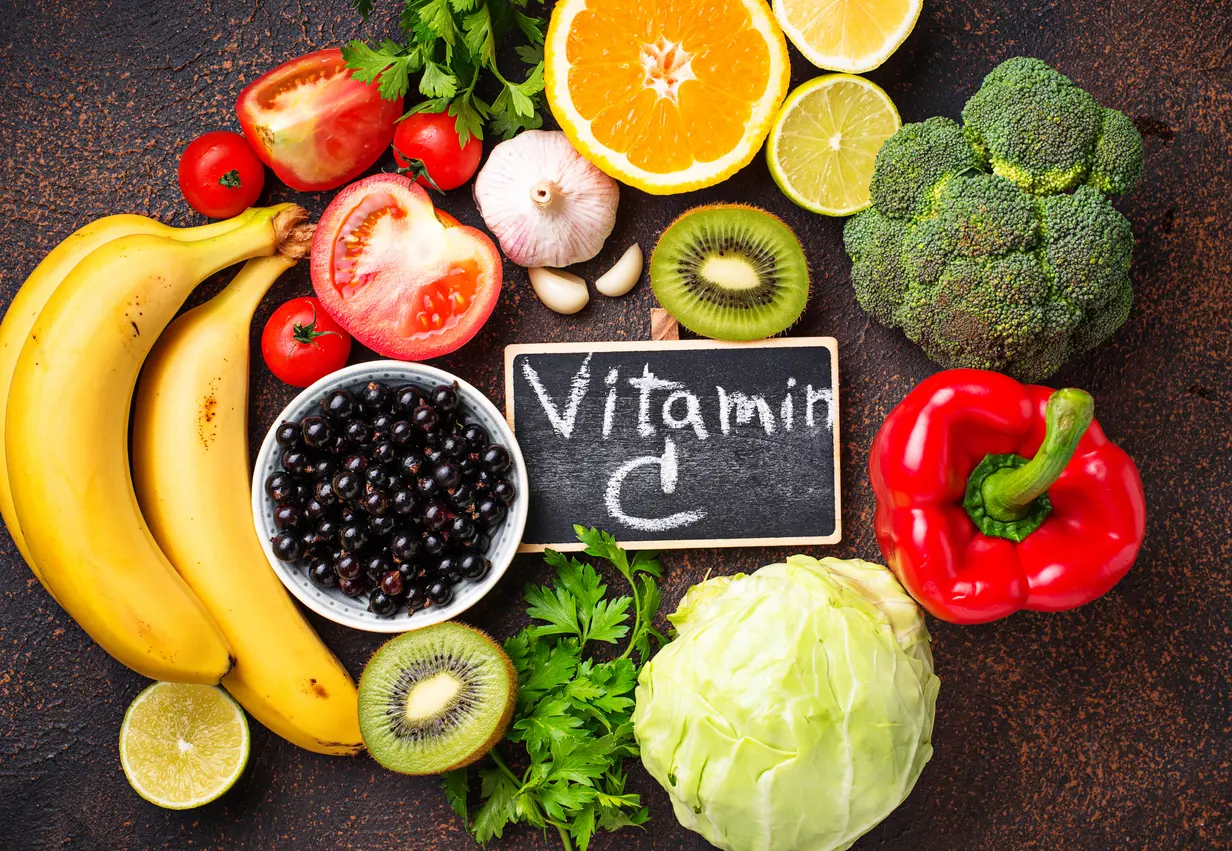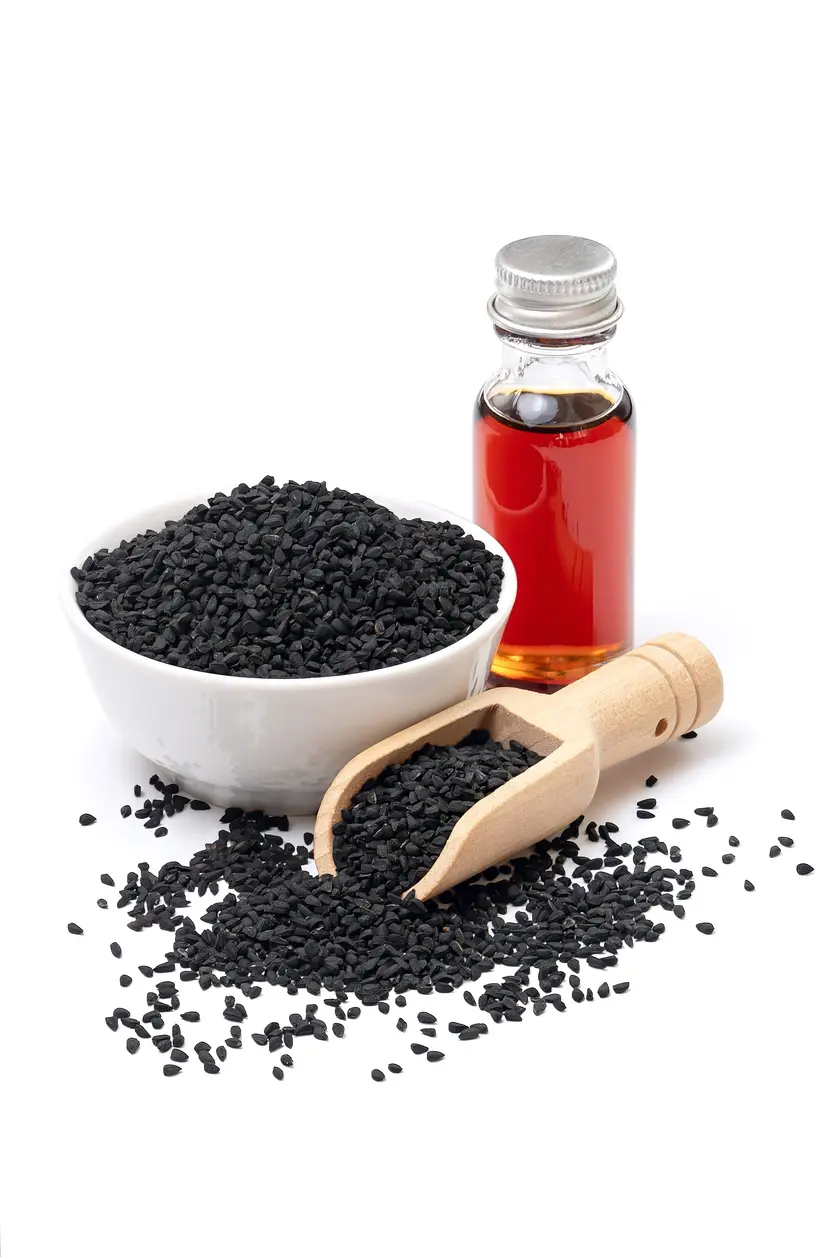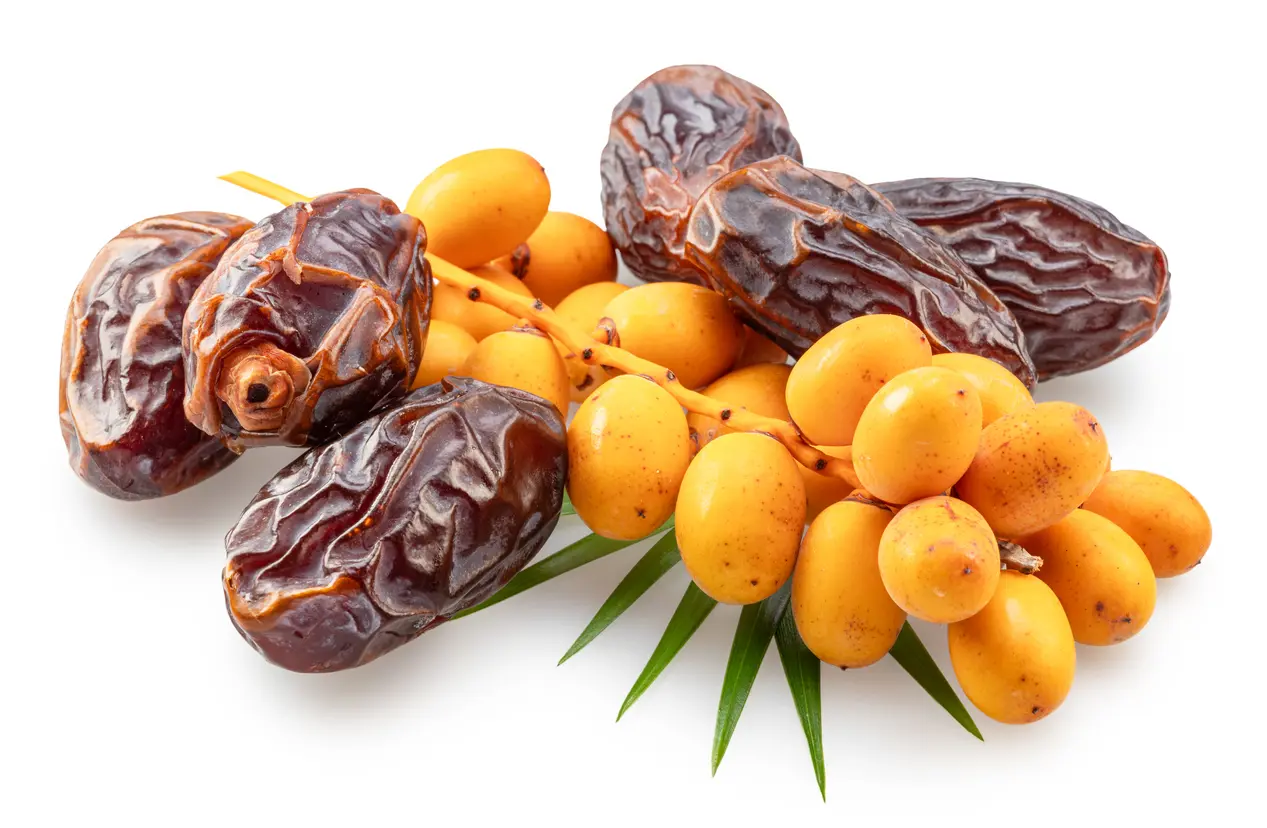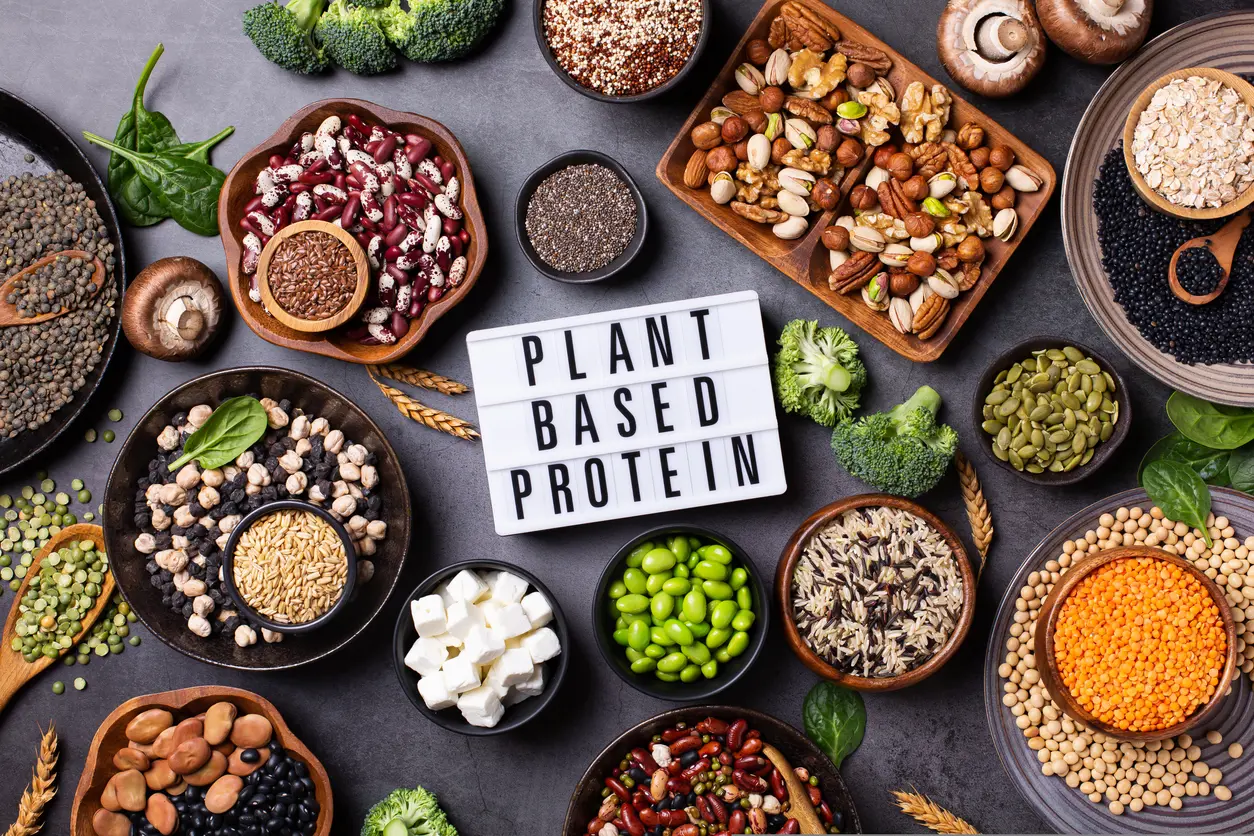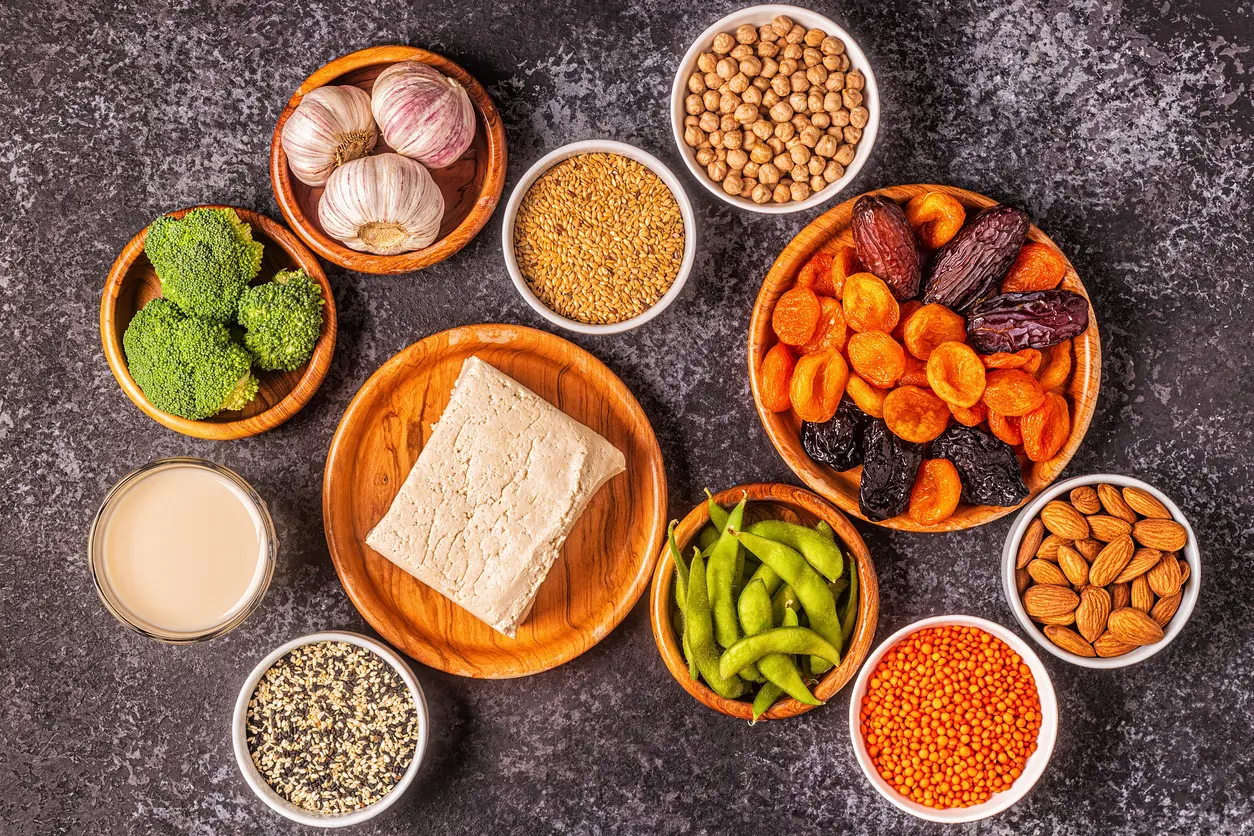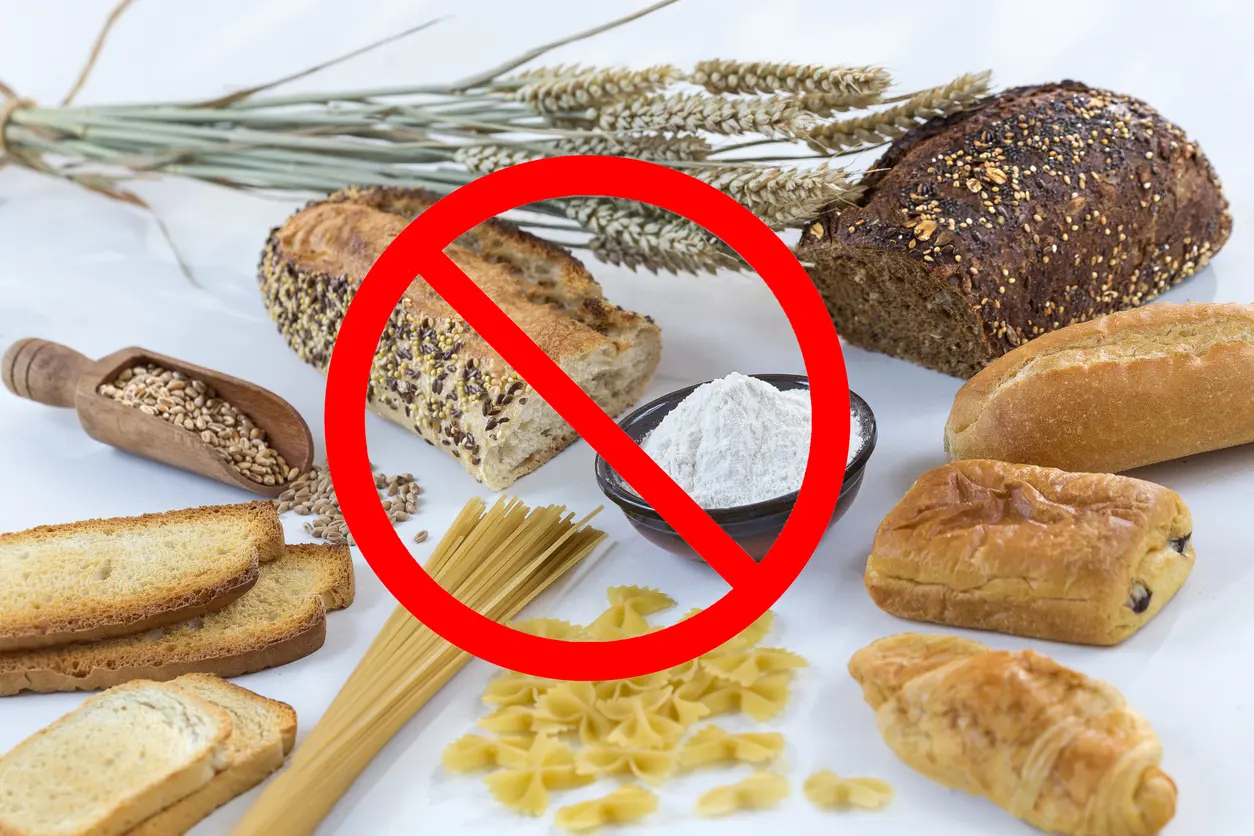MCT-Rich Foods to Support a Healthier Diet
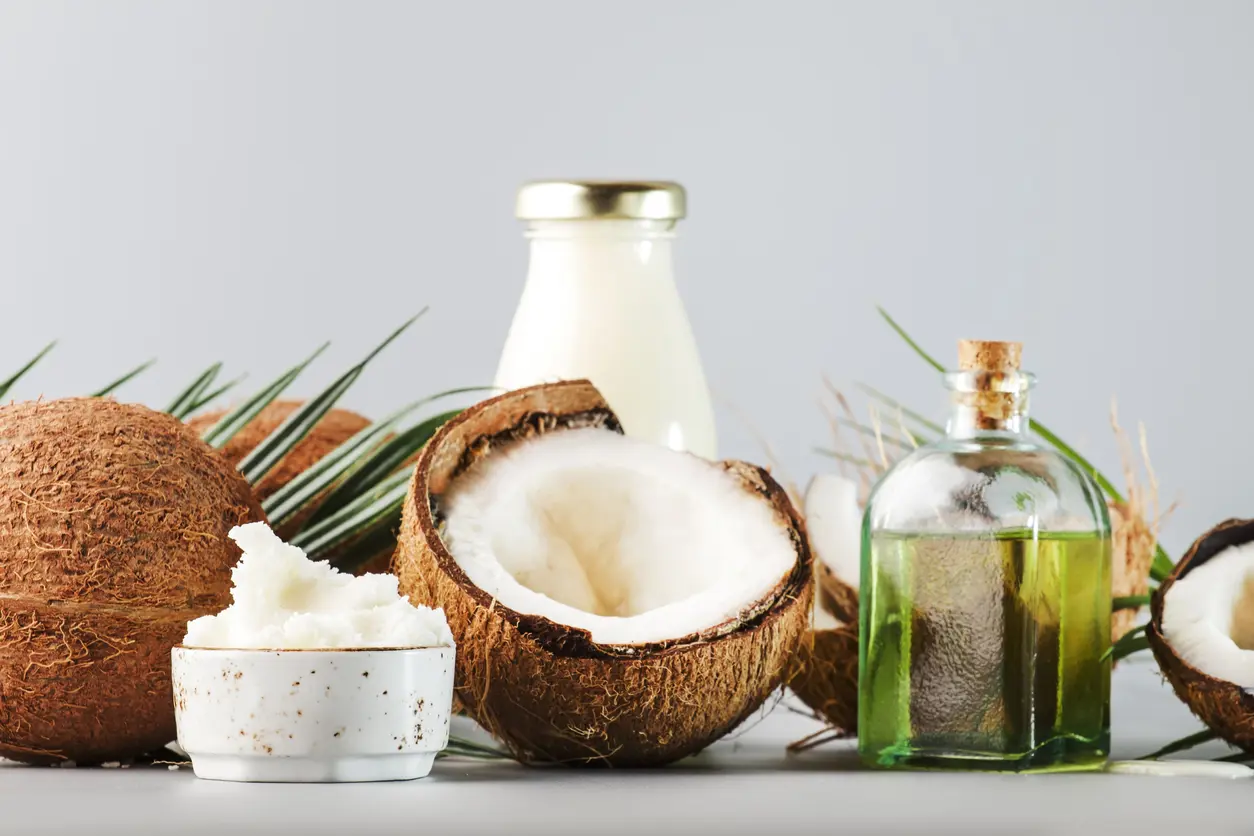
Fats used to get a bad rap, but thankfully, there’s scientific research to prove otherwise. MCTs (Medium Chain Triglycerides) are a type of fat that’s gotten a lot of attention these days, with good reason. MCTs are easily absorbed fats that may impact your metabolism, brain health, and overall energy.
Some foods naturally contain MCTs, but you may also find them added to coffee creamers or dietary supplements. These may be used as solo MCTs or combined with prebiotic fiber or other dietary supplements, such as collagen.
Keep reading to learn more about natural, food-based sources of MCTs, the role of MCTs in supporting metabolic health, energy, and brain health, and daily usage tips and meal ideas that include foods rich in MCTs.
What Are MCTs?
MCTs are fats that are chemically made up of fatty acid chains with between 6 and 12 carbon atoms, making them easier to absorb than longer-chain fatty acids. They can be used as a quick energy source for the brain and body. [1] Nimbkar S, Leena MM, Moses JA, Anandharamakrishnan C. Medium chain triglycerides (MCT): State-of-the-art on chemistry, synthesis, health benefits and applications in food industry. Compr Rev Food Sci Food Saf. 2022 Mar;21(2):843-867. doi: 10.1111/1541-4337.12926. Epub 2022 Feb 18. PMID: 35181994.
Long-chain fatty acids contain 12 or more carbons and take longer to break down and be absorbed in the body. Most fats in our diets contain long-chain fatty acids. These include most edible oils such as canola, corn, olive, and soybean oil. [2] Abedi E, Sahari MA. Long-chain polyunsaturated fatty acid sources and evaluation of their nutritional and functional properties. Food Sci Nutr. 2014 Sep;2(5):443-63. doi: 10.1002/fsn3.121. Epub 2014 Jun 29. PMID: 25473503; PMCID: PMC4237475.
Health Benefits of MCT-Rich Foods
Quick energy source
As MCTs have shorter chains of fatty acids, they skip part of the digestive process and travel straight to the liver to be used for energy. MCTs are changed to ketones, which the body can use as fuel instead of glucose. [2] Abedi E, Sahari MA. Long-chain polyunsaturated fatty acid sources and evaluation of their nutritional and functional properties. Food Sci Nutr. 2014 Sep;2(5):443-63. doi: 10.1002/fsn3.121. Epub 2014 Jun 29. PMID: 25473503; PMCID: PMC4237475.
MCTs are also useful for brain health. One study suggests that supplemental MCT oil for 3 months may improve memory function in older adults with frailty and dementia. This may be due to glucose suppression in the brain, which suggests a relationship to the cerebro-cerebellar network. [3] Mutoh T, Kunitoki K, Tatewaki Y, Yamamoto S, Thyreau B, Matsudaira I, Kawashima R, Taki Y. Impact of medium-chain triglycerides on gait performance and brain metabolic network in healthy older adults: a double-blind, randomized controlled study. Geroscience. 2022 Jun;44(3):1325-1338. doi: 10.1007/s11357-022-00553-z. Epub 2022 Apr 5. PMID: 35380356; PMCID: PMC9213591.
Supports metabolism and fat oxidation
The use of MCT oil may also support metabolism and fat oxidation. MCT oil may support metabolism by providing a “metabolic switch”, meaning the body uses fat for energy instead of glucose. One study using a supplement containing MCT along with intermittent fasting may provide a neuroprotective effect in older individuals. [4] Vandenberghe C, St-Pierre V, Fortier M, Castellano CA, Cuenoud B, Cunnane SC. Medium Chain Triglycerides Modulate the Ketogenic Effect of a Metabolic Switch. Front Nutr. 2020 Jan 31;7:3. doi: 10.3389/fnut.2020.00003. PMID: 32083091; PMCID: PMC7005013.
According to a 2022 study, consuming 2 grams of MCTs per day for 2 weeks increased fat oxidation during low-intensity physical activity in overweight subjects (BMIs between 25 and 30). [5] Tsujino S, Nosaka N, Sadamitsu S, Kato K. Effect of Continuous Ingestion of 2 g of Medium-Chain Triglycerides on Substrate Metabolism during Low-Intensity Physical Activity. Nutrients. 2022 Jan 26;14(3):536. doi: 10.3390/nu14030536. PMID: 35276897; PMCID: PMC8839453.
Promotes satiety
MCT oil has been recommended as an appetite suppressant; however, a 2022 systematic review of studies suggests it does not impact initial appetite, but rather subsequent food intake. [6] Maher T, Clegg ME. A systematic review and meta-analysis of medium-chain triglycerides effects on acute satiety and food intake. Crit Rev Food Sci Nutr. 2021;61(4):636-648. doi: 10.1080/10408398.2020.1742654. Epub 2020 Mar 26. PMID: 32212947.
Potential cognitive benefits
Research about the positive impact of MCT use and cognition is impressive. MCT oil supplementation may improve cognition since it provides a readily available source of ketones for the brain.
A 2021 study on MCT oil and a ketogenic diet indicates that the shift from glucose to ketones may be neuroprotective in individuals with diabetes, who are at higher risk for Alzheimer’s dementia. [7] Takeishi J, Tatewaki Y, Nakase T, Takano Y, Tomita N, Yamamoto S, Mutoh T, Taki Y. Alzheimer's Disease and Type 2 Diabetes Mellitus: The Use of MCT Oil and a Ketogenic Diet. Int J Mol Sci. 2021 Nov 15;22(22):12310. doi: 10.3390/ijms222212310. PMID: 34830192; PMCID: PMC8624628.
While research is often done on MCT-supplemented foods, consuming natural sources of MCTs may also be beneficial. These include coconut oil, palm kernel oil, and milk fat from full-fat dairy products. [8] Jadhav HB, Annapure US. Triglycerides of medium-chain fatty acids: a concise review. J Food Sci Technol. 2023 Aug;60(8):2143-2152. doi: 10.1007/s13197-022-05499-w. Epub 2022 Jun 22. PMID: 35761969; PMCID: PMC9217113.
Coconut Oil
According to Lisa Young, PhD, RDN, Author of Finally Full, Finally Slim, and Adjunct Professor of Nutrition, NYU drlisayoung.com, “Coconut oil is about 80–90% saturated fat; its dominant fatty acid is lauric acid along with smaller amounts of palmitic, and caprylic.
Lauric acid technically qualifies as an MCT but is digested more slowly, behaving more like a long-chain fat. Coconut oil is about 60% MCTs overall, with roughly 40% lauric acid.”
Dr. Young advises that coconut oil is great for sautéing, baking, or adding to roasted veggies for a hint of sweetness and nutty flavor. It has a high smoke point, so it can be used when cooking with high heat. She also suggests using it in smoothies or drizzled over oatmeal for extra creaminess.
Palm Kernel Oil
Young notes that palm kernel oil is similar to coconut oil; highly saturated, rich in MCTs (especially caprylic, capric acids, known as C8 and C10, respectively). Palm kernel oil contains roughly 50% MCT.
She suggests using palm kernel oil in baking or for pastries due to its neutral taste and flaky results. This MCT oil is stable at high heat, making it ideal for frying or roasting.
Most sustainably sourced palm kernel oil is sold in the US and Europe, which have higher sustainability requirements. [9] From boycotts to inclusion: Is sustainable palm oil (finally) the way forward? - Roundtable on Sustainable Palm Oil (RSPO)
Butter (especially grass-fed)
According to Young, grass-fed butter provides a modest amount of MCTs, including caprylic, capric, and lauric acids. It also contains higher levels of vitamin C and omega-3 fatty acids compared to conventional butter. It’s a source of CLA (conjugated linoleic acid).
Butter contains about 8% MCTs. Young notes that butter is perfect for finishing vegetables, melting over grains, or using in baking and sauces. It adds flavor and richness. Use grass-fed butter in place of regular butter for omega-3 benefits.
Ghee
Ghee is butter that’s been heated, and water and milk solids are removed, leaving more concentrated fat. It’s often called clarified butter and is frequently used in Southeast Asian cuisine.
Ghee is made up of palmitic, myristic, and stearic acids. It contains mostly saturated fat, and 25 percent of the fat is MCTs.
Ghee has a higher smoke point than butter, making it useful for stir-fried or roasted foods. Recent research suggests ghee may have anti-inflammatory, cognitive, and gastrointestinal benefits. [10] Kataria D, Singh G. Health benefits of ghee: Review of Ayurveda and modern science perspectives. J Ayurveda Integr Med. 2024 Jan-Feb;15(1):100819. doi: 10.1016/j.jaim.2023.100819. Epub 2024 Jan 5. PMID: 38181707; PMCID: PMC10789628.
Full-Fat Dairy
Full-fat dairy is a delicious and natural way to consume MCTs in your diet. Dairy products contain caproic, caprylic, and capric fatty acids, which make up about 4–12% of total fatty acids. Lauric acid constitutes about 3–5% of fatty acids. [8] Jadhav HB, Annapure US. Triglycerides of medium-chain fatty acids: a concise review. J Food Sci Technol. 2023 Aug;60(8):2143-2152. doi: 10.1007/s13197-022-05499-w. Epub 2022 Jun 22. PMID: 35761969; PMCID: PMC9217113.
Full-fat dairy products are easy to use in smoothies, sauces, or soups. Cheese and yogurt may be added to recipes or used on their own as snacks. In addition to MCTs, dairy products also offer protein, vitamins A and D, and calcium.
Yogurt also offers probiotics, which are great for gut health.
MCT Oil (optional supplement)
MCT oil is a single supplement and not part of a whole food. It’s typically derived from coconut or palm oil, but unlike coconut oil, it’s liquid at room temperature. It contains primarily caprylic acid and capric acid, which can be quickly changed to ketones. Commercial products often add MCT oil. These include items such as coffee creamers and collagen peptides.
MCT oil is odorless and can be added to coffee, tea, smoothies, or used as a salad dressing. Bulletproof coffee is an example of a product that contains butter and MCT oil.
How to Add MCT Foods to Your Diet
- Use coconut oil or ghee for cooking. Ghee is a staple in traditional South Asian cuisine, offering a rich, nutty flavor.
- Enjoy moderate amounts of butter to season vegetables or use butter in keto-friendly baked treats.
- Full-fat yogurt is delicious as a snack or part of fruit parfait. Enjoy cheese with whole grain crackers or shredded in a salad or bowl.
- Full-fat cow’s milk or coconut milk would make a delicious MCT-rich smoothie.
As MCTs can be higher in saturated fats, use them as a balanced part of your diet, along with unsaturated fats such as avocado, canola, olive, and soybean oil.
Are MCT Foods Right for Everyone?
The people who will receive the most benefit from consuming foods or oils containing MCTs include low-carb (keto) dieters, older adults doing low-intensity exercise, and individuals with metabolic goals. These include weight management, blood sugar control, or those at risk of cognitive decline.
A recent study found MCTs to be an ineffective ergogenic aid in healthy athletes. [11] Chapman-Lopez TJ, Koh Y. The Effects of Medium-Chain Triglyceride Oil Supplementation on Endurance Performance and Substrate Utilization in Healthy Populations: A Systematic Review. J Obes Metab Syndr. 2022 Sep 30;31(3):217-229. doi: 10.7570/jomes22028. Epub 2022 Sep 13. PMID: 36096496; PMCID: PMC9579472.
Studies using MCT-rich diets in rodents suggest exacerbated liver disease, and further research is needed in humans. [12] Yi C, Li D, Guo X, Wang J, Liu C, Lu G, Sun Y, Huang H, Hong S, Li J. The Storage Conditions of High-Fat Diet Are the Key Factors for Diet-Induced Obesity and Liver Damage. Nutrients. 2022; 14(11):2222. https://doi.org/10.3390/nu14112222
People with digestive issues such as Celiac disease or pancreatitis may benefit from using MCT oil in place of LCT, as it does not require pancreatic enzymes for digestion. Some research suggests it may reduce pain in those with pancreatitis. [13] Parrish-February-17.pdf The Use of Medium-Chain Triglycerides in Gastrointestinal Disorders. Nutrition Issues in Gastroenterology, Series 160
Individuals with gastrointestinal disorders can benefit from the help of a registered dietitian to provide appropriate medical nutrition therapy (MNT).
Conclusion
Foods rich in MCTs may be beneficial for weight management and cognitive function, but should be used in moderation in individuals with elevated blood cholesterol. Coconut, palm oil, and full-fat dairy products are high in saturated fats.
Coconut oil may be less detrimental than butter, but unsaturated fats such as safflower, sunflower, and canola oil are more effective in lowering LDL and total cholesterol. More research is needed about the link between coconut oil and cardiovascular disease. [14] Schwingshackl L, Schlesinger S. Coconut Oil and Cardiovascular Disease Risk. Curr Atheroscler Rep. 2023 May;25(5):231-236. doi: 10.1007/s11883-023-01098-y. Epub 2023 Mar 27. PMID: 36971981; PMCID: PMC10182109.
Before purchasing expensive supplements, try natural food-based sources of MCTs first. If you have a history of high cholesterol, discuss the use of MCTs with your healthcare provider.
Small, sustainable changes are beneficial for long-term health versus drastic measures. Check out more articles on nutrition and health at www.gonutrigo.com.
Was this article helpful?
-
Medium chain triglycerides (MCT): State-of-the-art on chemistry, synthesis, health benefits and applications in food industry. Compr Rev Food Sci Food Saf. 2022 Mar;21(2):843-867. doi: 10.1111/1541-4337.12926. Epub 2022 Feb 18. PMID: 35181994.; Nimbkar S, Leena MM, Moses JA, Anandharamakrishnan C. ;
https://pubmed.ncbi.nlm.nih.gov/35181994/ -
Long-chain polyunsaturated fatty acid sources and evaluation of their nutritional and functional properties. Food Sci Nutr. 2014 Sep;2(5):443-63. doi: 10.1002/fsn3.121. Epub 2014 Jun 29. PMID: 25473503; PMCID: PMC4237475.; Abedi E, Sahari MA. ;
https://pubmed.ncbi.nlm.nih.gov/25473503/ -
Impact of medium-chain triglycerides on gait performance and brain metabolic network in healthy older adults: a double-blind, randomized controlled study. Geroscience. 2022 Jun;44(3):1325-1338. doi: 10.1007/s11357-022-00553-z. Epub 2022 Apr 5. PMID: 35380356; PMCID: PMC9213591.; Mutoh T, Kunitoki K, Tatewaki Y, Yamamoto S, Thyreau B, Matsudaira I, Kawashima R, Taki Y. ;
https://pubmed.ncbi.nlm.nih.gov/35380356/ -
Medium Chain Triglycerides Modulate the Ketogenic Effect of a Metabolic Switch. Front Nutr. 2020 Jan 31;7:3. doi: 10.3389/fnut.2020.00003. PMID: 32083091; PMCID: PMC7005013.; Vandenberghe C, St-Pierre V, Fortier M, Castellano CA, Cuenoud B, Cunnane SC. ;
https://pubmed.ncbi.nlm.nih.gov/32083091/ -
Effect of Continuous Ingestion of 2 g of Medium-Chain Triglycerides on Substrate Metabolism during Low-Intensity Physical Activity. Nutrients. 2022 Jan 26;14(3):536. doi: 10.3390/nu14030536. PMID: 35276897; PMCID: PMC8839453.; Tsujino S, Nosaka N, Sadamitsu S, Kato K. ;
https://pmc.ncbi.nlm.nih.gov/articles/PMC8839453/ -
A systematic review and meta-analysis of medium-chain triglycerides effects on acute satiety and food intake. Crit Rev Food Sci Nutr. 2021;61(4):636-648. doi: 10.1080/10408398.2020.1742654. Epub 2020 Mar 26. PMID: 32212947.; Maher T, Clegg ME. ;
https://pubmed.ncbi.nlm.nih.gov/32212947/ -
Alzheimer's Disease and Type 2 Diabetes Mellitus: The Use of MCT Oil and a Ketogenic Diet. Int J Mol Sci. 2021 Nov 15;22(22):12310. doi: 10.3390/ijms222212310. PMID: 34830192; PMCID: PMC8624628.; Takeishi J, Tatewaki Y, Nakase T, Takano Y, Tomita N, Yamamoto S, Mutoh T, Taki Y. ;
https://pubmed.ncbi.nlm.nih.gov/34830192/ -
Triglycerides of medium-chain fatty acids: a concise review. J Food Sci Technol. 2023 Aug;60(8):2143-2152. doi: 10.1007/s13197-022-05499-w. Epub 2022 Jun 22. PMID: 35761969; PMCID: PMC9217113.; Jadhav HB, Annapure US. ;
https://pubmed.ncbi.nlm.nih.gov/35761969/ -
From boycotts to inclusion: Is sustainable palm oil (finally) the way forward? - Roundtable on Sustainable Palm Oil (RSPO);
https://rspo.org/from-boycotts-to-inclusion-is-sustainable-palm-oil-finally-the-way-forward/ -
Health benefits of ghee: Review of Ayurveda and modern science perspectives. J Ayurveda Integr Med. 2024 Jan-Feb;15(1):100819. doi: 10.1016/j.jaim.2023.100819. Epub 2024 Jan 5. PMID: 38181707; PMCID: PMC10789628.; Kataria D, Singh G. ;
https://pubmed.ncbi.nlm.nih.gov/38181707/ -
The Effects of Medium-Chain Triglyceride Oil Supplementation on Endurance Performance and Substrate Utilization in Healthy Populations: A Systematic Review. J Obes Metab Syndr. 2022 Sep 30;31(3):217-229. doi: 10.7570/jomes22028. Epub 2022 Sep 13. PMID: 36096496; PMCID: PMC9579472.; Chapman-Lopez TJ, Koh Y. ;
https://pubmed.ncbi.nlm.nih.gov/36096496/ -
The Storage Conditions of High-Fat Diet Are the Key Factors for Diet-Induced Obesity and Liver Damage. Nutrients. 2022; 14(11):2222. https://doi.org/10.3390/nu14112222; Yi C, Li D, Guo X, Wang J, Liu C, Lu G, Sun Y, Huang H, Hong S, Li J. ;
https://pubmed.ncbi.nlm.nih.gov/35684023/ -
The Use of Medium-Chain Triglycerides in Gastrointestinal Disorders. Nutrition Issues in Gastroenterology, Series 160; Parrish-February-17.pdf ;
https://med.virginia.edu/ginutrition/wp-content/uploads/sites/199/2014/06/Parrish-February-17.pdf -
Coconut Oil and Cardiovascular Disease Risk. Curr Atheroscler Rep. 2023 May;25(5):231-236. doi: 10.1007/s11883-023-01098-y. Epub 2023 Mar 27. PMID: 36971981; PMCID: PMC10182109.; Schwingshackl L, Schlesinger S. ;
https://pubmed.ncbi.nlm.nih.gov/36971981/




